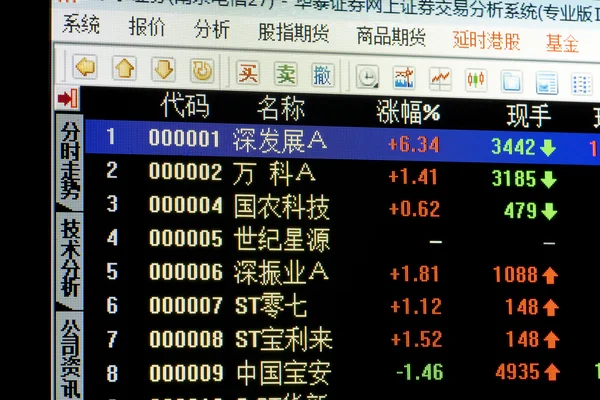Asian markets mostly fell Monday (Feb 6) and the dollar extended gains after a forecast-busting US jobs report fanned expectations of more Federal Reserve interest rate hikes.
The rally enjoyed through January has come to a halt this month as investors contemplate an extended period of high borrowing costs aimed at bringing inflation down from multi-decade highs.
A softer tone from the Fed regarding its monetary tightening campaign had allowed market participants to entertain the possibility of a pause, or even a cut, later in the year.
But that optimism was dealt a heavy blow Friday by data showing more than half a million new jobs were created in the United States last month, nearly double the December figure and far more than the 188,000 expected.
Government figures also showed unemployment fell to the lowest level since 1969.
The reading showed the world’s biggest economy remained strong despite almost a year of rate hikes and soaring prices, indicating the Fed still had plenty of work to do to rein in inflation.
The losses continued in Asia, with Hong Kong sinking 1.9 percent, while Shanghai, Sydney, Seoul, Taipei, Manila, and Jakarta were also down.
However, there were gains in Tokyo and Singapore.
Traders were keeping tabs on China-US relations after the shooting down of the giant balloon at the weekend.
Pentagon officials described the airship as a “high-altitude surveillance balloon”, adding, without elaboration, that Washington had taken steps to block it from collecting sensitive information.
Beijing hit out at the move, warning it “seriously impacted and damaged” relations,
On currency markets the prospect of rates going much higher saw the dollar surge against its main peers Friday, and it continued to strengthen in Asia.
The yen was further weakened by a report saying deputy governor Masayoshi Amamiya could succeed Haruhiko Kuroda as head of the Bank of Japan later this year.
Observers said such a move could see the central bank sticking to the ultra-loose monetary policy that has kept it from lifting interest rates.
AFP









